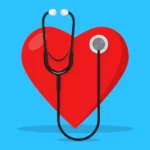
Top 10 Questions To Ask The Cardiologist About AFib
September 18, 2024What is Holiday Heart Syndrome?
With the holidays approaching, it's a good time to discuss atrial fibrillation (AFib) and how it can be triggered during this festive season. Holiday Heart Syndrome refers to AFib events that can occur after indulging in alcohol, sugar, or caffeine at parties or events. It’s not uncommon to reach for an extra glass of holiday cheer or enjoy an additional holiday treat. During a time when sleep is scarce and stress is high, it’s easy to see why Holiday Heart happens.
How To Avoid Holiday Heart
- Alcohol: The most common holiday trigger for AFib, often due to its diuretic effect and loss of electrolytes, is alcohol. If you plan to drink, stay hydrated and stick to the recommended limit of 1-2 alcoholic beverages per day. Consider festive mocktails that won’t trigger AFib.
- Caffeine: We often rely on caffeine for extra energy during the holidays, but it can act as a stimulant causing extra heartbeats or a racing heart. It also has a diuretic effect that can lead to dehydration. Plan to stay hydrated if you’re having extra caffeine.
- Sugar: Plentiful during the holidays, sugar acts as a stimulant causing your heart to race. It can also lead to weight gain, which negatively impacts heart health. Balance sugar with protein and fiber. Try eating a salad or starting with the veggie tray before indulging in sweets to slow your sugar intake.
- Sodium: Elevated sodium levels can impact heart health by causing elevated blood pressure, which increases the likelihood of AFib. It can be hard to monitor sodium intake while eating out, so avoid processed foods and salty snacks.
- Stress Management: Managing stress is crucial during the holidays. A quick 15-20 minute walk helps clear your mind, boosts metabolism, and aids digestion. If you can't leave your desk, try breathwork exercises like the 4-2-6 method: inhale for 4 seconds, hold for 2, and exhale for 6 seconds. Start by repeating this three times to feel the stress start to melt away.
- Sleep: Prioritize sleep, even with numerous obligations. Sometimes it’s better to decline an invitation and treat yourself to 8 hours of sleep, which helps you feel better and boosts your immune system.
What To Do If You Get Holiday Heart
AFib events can occur sporadically without any rhyme or reason, so don’t feel bad if you can’t pinpoint a trigger. Always inform your physician if you have an AFib event, or if you think the situation is more serious, call 9-1-1.
Follow the tips above and practice moderation for a heart-healthy holiday season. Identifying your AFib triggers before the season starts can be helpful. If you discover your AFib triggers, try to avoid them. I'm always available to provide AFib coaching if you have questions or need guidance. I hope you enjoy the holiday season!


